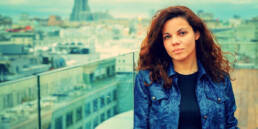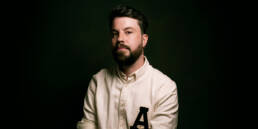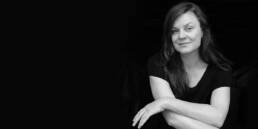
Frans Bak, the pioneering composer behind the sound of Nordic Noir, has just launched ‘Piano’, a deeply personal album that carries a lot of meaning and intimate history with it.
The Danish composer, known for his neoclassical compositions and atmospheric soundscapes, has impacted the international scoring scene and has set new musical standards with his work on the hit TV series ‘The Killing’.
Now planning to incorporate more albums and live performances into his repertoire, Frans continues to delight us with new material as he navigates the realm of sound with an endless curiosity to explore and discover.
You’ve set the musical tone for the Nordic Noir crime genre, yet you’re classically trained and you’re also a jazz performer. How did you get there? Did the improvisational nature of jazz instil the love to experiment in you?
I was working with the director Birger Larsen. We made some ‘Wallander’ movies in Sweden before we did ‘The Killing’. He said to me very early, ‘Can you make some long, very dark pieces of music with a splash of hope?’ And I worked a lot on that. Actually, to be honest, we spent a lot of time trying to find the tone for the opening of ‘The Killing’. I’m not sure that my jazz experience had helped me that much, but just being curious and trying things out and trying to find out what connected with the story. And just keeping the connection is an important thing for me.
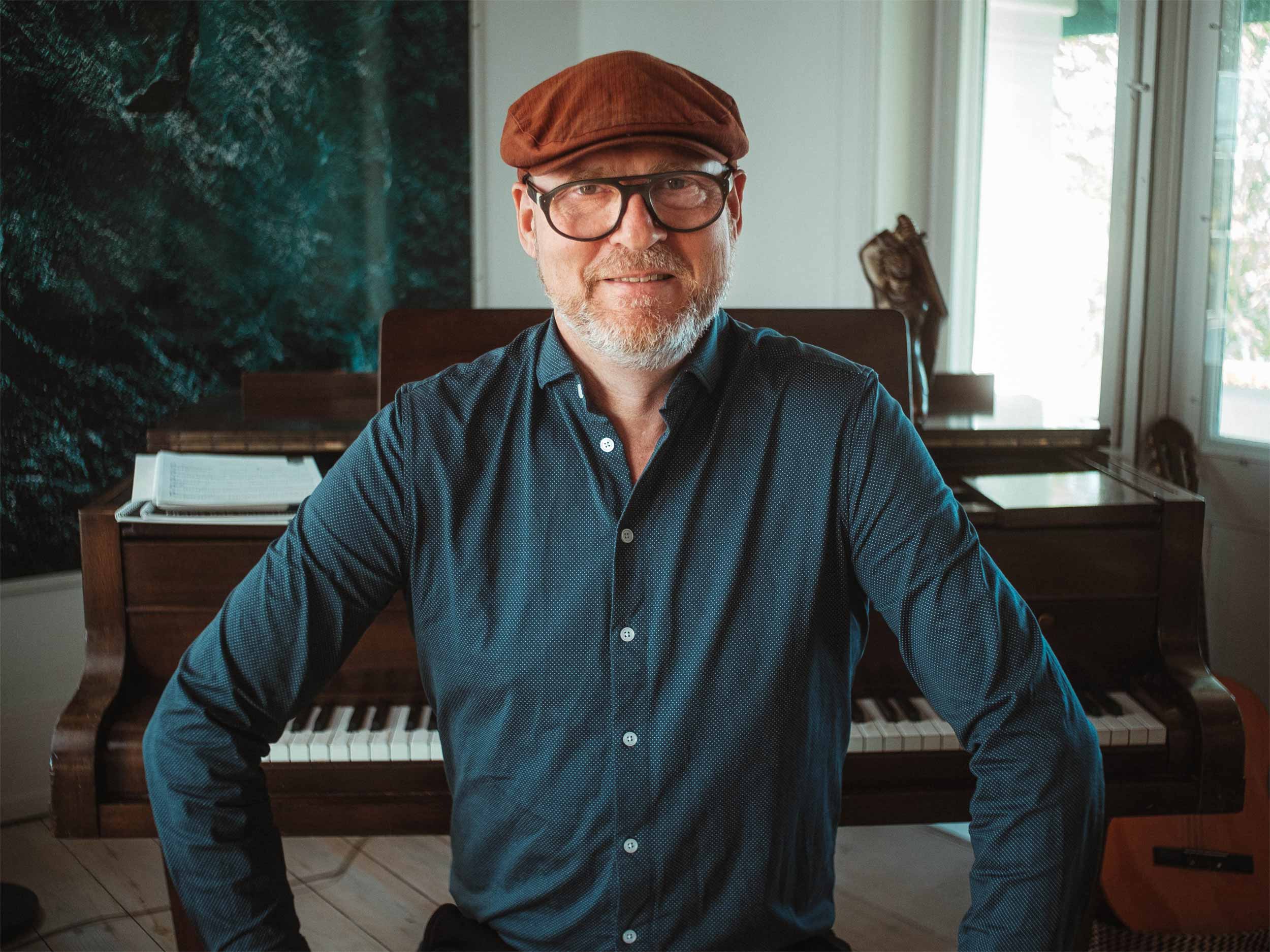
Do you remember a particular time when you discovered a certain instrument, a tuning system or a particular sound that influenced your musical voice?
I have a…Oh! Wait a second! I’ll go bring something from upstairs. I’ll show you! [he runs enthusiastically upstairs and brings down a black krenit bowl, which he then proceeds to strike. The produced sound immediately summons the opening to ‘The Killing’]
It has a fantastic sound. I recorded and sampled it and use that a lot. I just remember how weird that was, sitting at the dinner table, just listening to this, ‘Oh! I gotta use this tomorrow!’ [laughs]
The sound reminds me of church bells, but a lot softer.
Yeah, exactly. Very very dark.
You’re quite the multitasker. You compose your own material, you compose music for film and television, and you’re also a saxophonist and pianist. On this spectrum, where do you find yourself to be most comfortable?
It’s that connection thing, when you connect with people. And playing a concert. I’m playing a concert next Tuesday in Denmark, which is fantastic – our first concert. It’s only for forty people and with a string quartet. It will be live streamed as well. To be honest, I can do any kinds of music, it’s just about, you know, connecting with people and playing with musicians, meeting people.
I played two concerts with a very popular Danish singer, who plays with three chords. She was connected with her audience and suddenly I felt, ‘WOW! This is fantastic!’
And also…Can I bring something more? [he runs upstairs, brings back a flute and starts playing a short jazzy tune]
I had this little flute and visited my aunt at the retirement home. But we couldn’t visit her and she was staying on the terrace. She couldn’t hear what I said, but then I played on the flute and she could hear it and she was dancing a little. So that’s connection. Every time you connect with people it’s wonderful. That’s the main thing for me. And to notice that you move something in your audience. If you have a scene in a movie and you try this kind of music, and then you try another kind of music, then you suddenly can see the spackle in the actor’s eye, you connect more with the picture.
The style of the music isn’t that important. But of course, my music is Nordic, I’ve followed this path.
You’ve worked on quite a lot of crime series. Did this happen out of the blue or have you always wanted to write for this genre?
I was actually working with Birger Larsen on a Swedish series before we did ‘The Killing’. Before that I made a family movie called ‘Nikolaj og Julie’ which was a love/romance series on Danish television that was very popular and it was probably one of the reasons why I got called for ‘The Killing’. So that was quite another ball game. I wasn’t thinking that crime is my special thing. I’ve read crime novels and all that, but it just happened and suddenly it was a good connection with me. After that I got calls for the American remake and all kinds of crime all over the world. I enjoy very much doing that but it wasn’t something I did, wake up and suddenly I’m a crime composer.
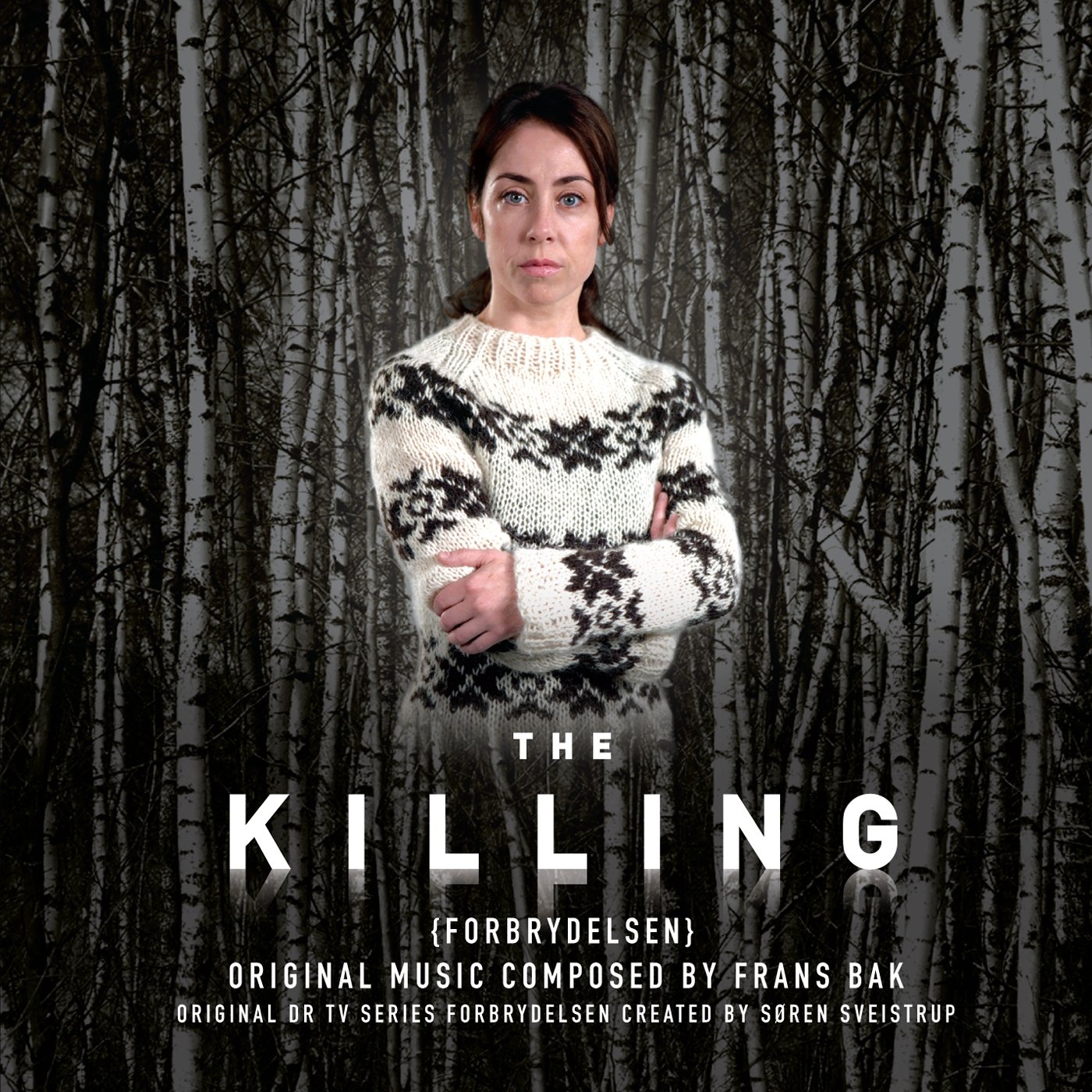
Speaking of ‘The Killing’, comparing the original Danish version with the American remake, I’ve noticed that you’ve used some of the same cues in the exact same spots in the story on both shows. The shows are quite similar, with some scenes being identical, but it’s also quite different. How did you go about scoring the two shows?
They very much liked the music from the Danish version. And so when they called me I think they actually wanted me to use the Danish music, but on the other hand, they also wanted me to write some new music, so it was very very strange. So we actually reused a lot of cues from the Danish version in the American version. But then it evolved into a totally new direction. When we came to the 4th season of the American version, the story was so much different, the music was different.
The first episode of the Danish and the American versions are almost alike. We made a lot of new music for the American version but at the beginning, it was building on the same musical themes.
There’s a particular track I really like from the Danish version. It’s called ‘Aquarium’. It sounds very Oriental, which makes it stand out from the others. Why did you choose that particular sound?
The reason why it’s called ‘Aquarium’ is because the first time we used it they were filming in an aquarium and then they moved it into other scenes. The music has nothing to do with the aquarium, it’s just because it’s in the picture.
I don’t know, it just felt right to use another sound. There were no thoughts about why it should be Oriental, it just felt right. Sometimes you can use some music and it’s curious what’s going to happen.
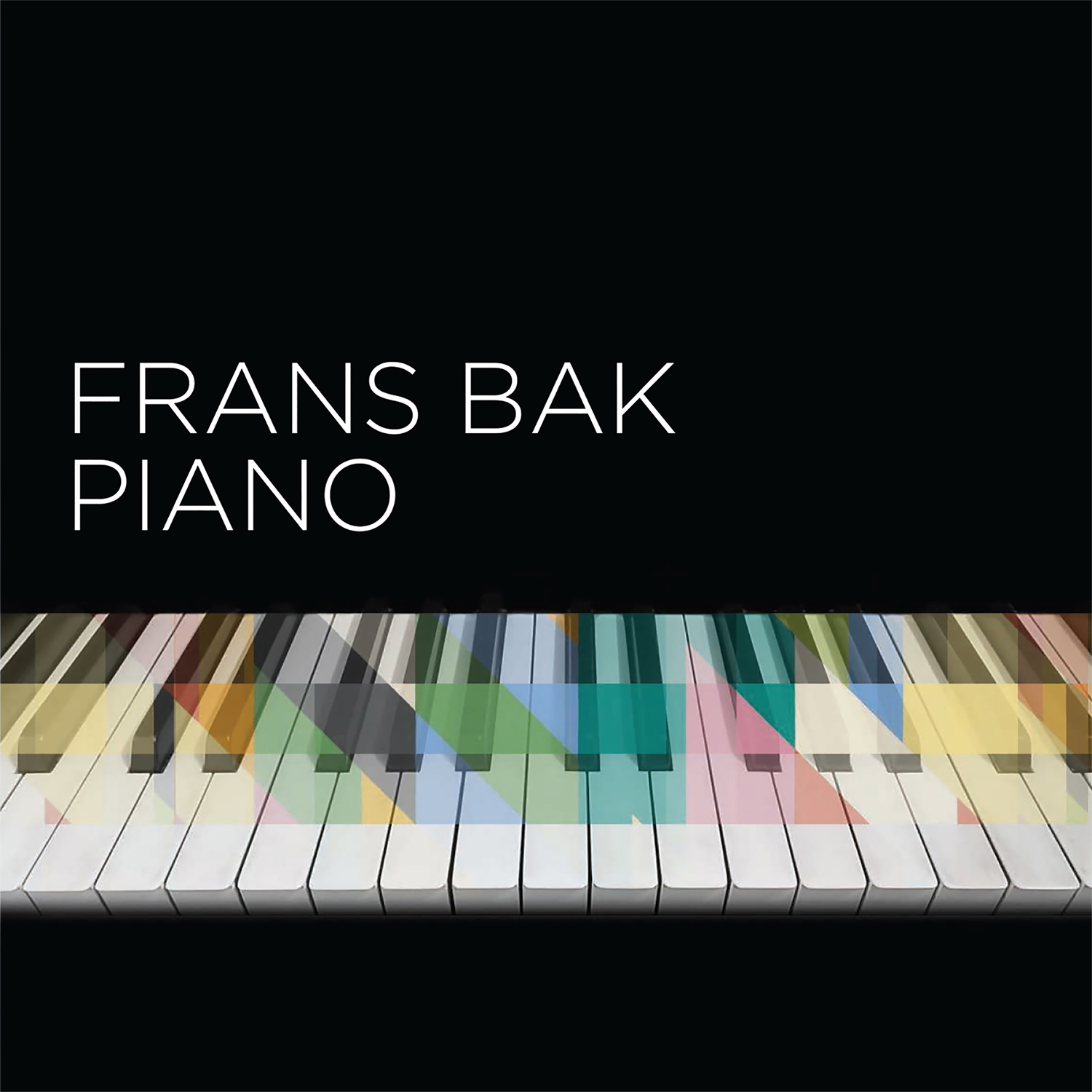
Your new album, ‘Piano’, was launched last Friday and was very well received. To me, the album sounds very personal, and it’s as if every track is taking us through a story. What is the story behind the album and what was your inspiration for it?
When I was a kid, I had a piano in my home. My mother took her own life at some point and I escaped into the music and just kept playing on that piano. And then when I moved into my own home, I inherited that piano. When my kids grew up, I sold it, and when they moved out of the house, I wanted to have a piano again. I then saw an ad that this piano was for sale – it had my name on it – and I bought it back. I then tried playing on this piano and all the music came for this album. This album is very much dedicated to escaping into the music and to this actual piano.
We call it ‘Piano’ because the music is soft, from the ‘piano’ musical dynamic.
How do you find inspiration when you write for film and television? Does the picture itself inspire you or do you have a routine? Or is it that you just need to sit down and do the work as the strict deadlines in the industry don’t allow you much time?
I always start very very early. For the last many years, I haven’t been struggling so much with deadlines because I start very early. For the last movie I made, the director was like, ‘What?! You can deliver the music now?!’ And I said, ‘Yeah, it states in my contract.’ So I was not the one struggling with the deadline.
It’s a very good thing for me to read the script very early in the process and start getting some thoughts about the music. Because when the director starts filming in the prep phase, just before filming, he has no time for the music at that moment because he’s so into all kinds of stuff, like the acting, places and what’s happening. So the music thing, you can do that afterwards. It’s very good to start with the music earlier than that actually.
“I wasn’t thinking that crime is my special thing. I’ve read crime novels and all that, but it just happened and suddenly it was a good connection with me.”
Sometimes I work a lot with the editor. Usually, they start editing after they’ve been shooting for a week or two. And then with the editor, you can find some music. He uses sometimes temp tracks, but then I start to make my own tracks. So when they edit the movie, they usually use my music, made for that film. Sometimes you can feel it’s wrong, but you started and you have something to talk about. So I like to put my music in very early in the process.
That’s great that they’re open to that over here, as in the States the deadlines can be quite tight.
Oh, yeah yeah, you’re right. When I did ‘The Killing’, it was totally different. Forgot about that. In the States, you get a cut and you have three days and then we meet and try [the music] and they mix it. So that’s very much different.
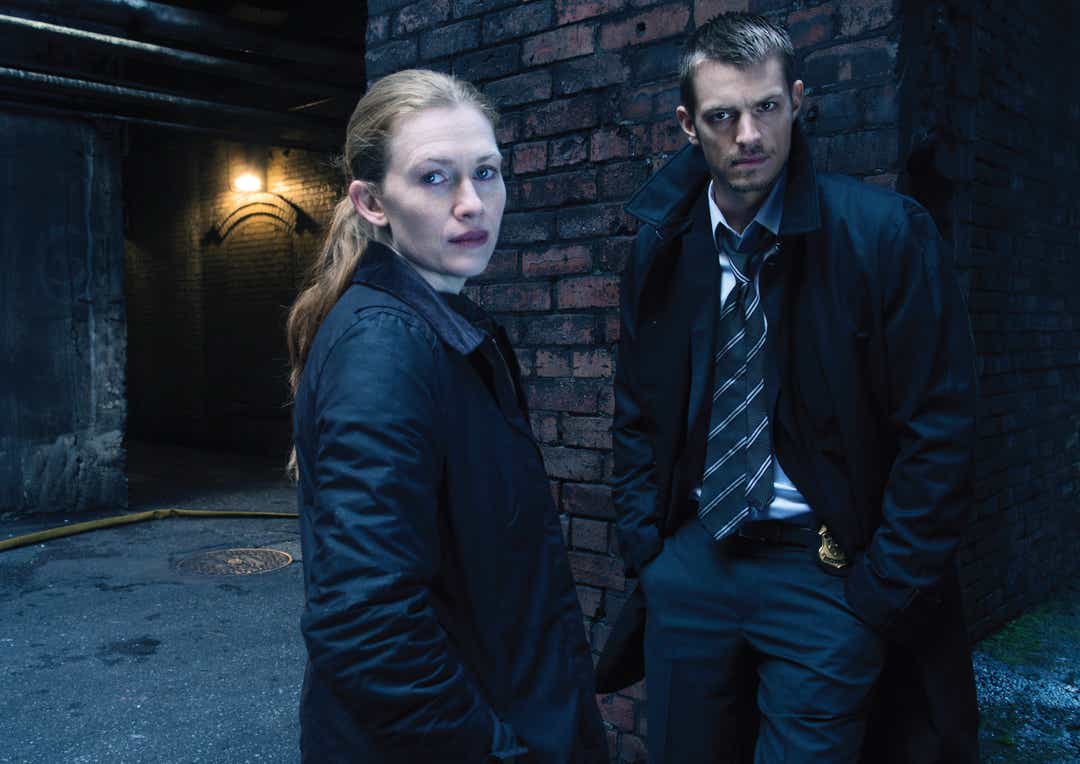 SARAH LINDEN (MIREILLE ENOS) AND STEPHEN HOLDER (JOEL KINNAMAN) IN ‘THE KILLING.’ FRANK OCKENFELS 3, AMC
SARAH LINDEN (MIREILLE ENOS) AND STEPHEN HOLDER (JOEL KINNAMAN) IN ‘THE KILLING.’ FRANK OCKENFELS 3, AMC
Do you find the process of working on an American production more stressful because of that?
Yeah, of course, very stressful. But, you know, deadlines are good sometimes, as you have to do it. I can work both ways. But I just feel that when I get approached for a project in Europe, we usually have much more time to work on it. But of course, in the States, we also had a very good music editor and I worked with him a lot. He did some editing for the music also. Those are two different ways of working and I enjoy both.
What is the main difference for you between writing material for your own albums and writing music that supports the story of a film or television series?
Every time you make music for something, you have to have some lines, some boxes. Every time you get direction for music it’s always easier to make the music. When you write music for your own, you can go in so many weird directions. But in a film you can feel what’s connecting with the film, ‘Oh, this is actually working.’ It’s very nice to have directions for your music and you have that when you work on a film. Usually.
Do you prefer to have the ‘box’ then, to have limitations?
Yeah, limitations, that’s it. Limitations are always good. Even if you make a painting, it’s going to be this big or that big. There are some kinds of limitations to work with. And of course, when you work on a film, you have limitations. But you can, of course, change them. ‘Where do we start?’, ‘Where do we stop?’, ‘Do we have a symphony orchestra?’, ‘Do we not have a symphony orchestra?’, ‘What kind of music?’, ‘Where is the right place to go?’
And also, in a film, music is not the most important thing. It’s part of the important things, but there are so many others. You have to work together, to collaborate on everything. But when you do your own stuff, it’s music that’s the most important thing.
So then, for your album, ‘Piano’, how long did it take you to do it, since you didn’t have those limitations? Did you struggle to say, ‘OK, this is good enough.’?
I had limitations because I decided this was going to be a piano album. So no symphony orchestra, saxophones etc. You always make your own limitations. Sometimes, for me it takes time to find the right limitations. But when you find them, it’s easier to work. I’ve been working on some of these tunes for many years, and suddenly I felt, ‘Oh, now I know. This is a piano album.’
I worked a lot with my assistant, who’s the producer of the album. He helped me a lot on that. I had a string quartet in there also. We have many projects we’re working on and when we have enough [material] we’d say, ‘OK, now we have to finish that.’ So maybe I’ve been working on this for a long time, but it may be half a year since we decided to do it.
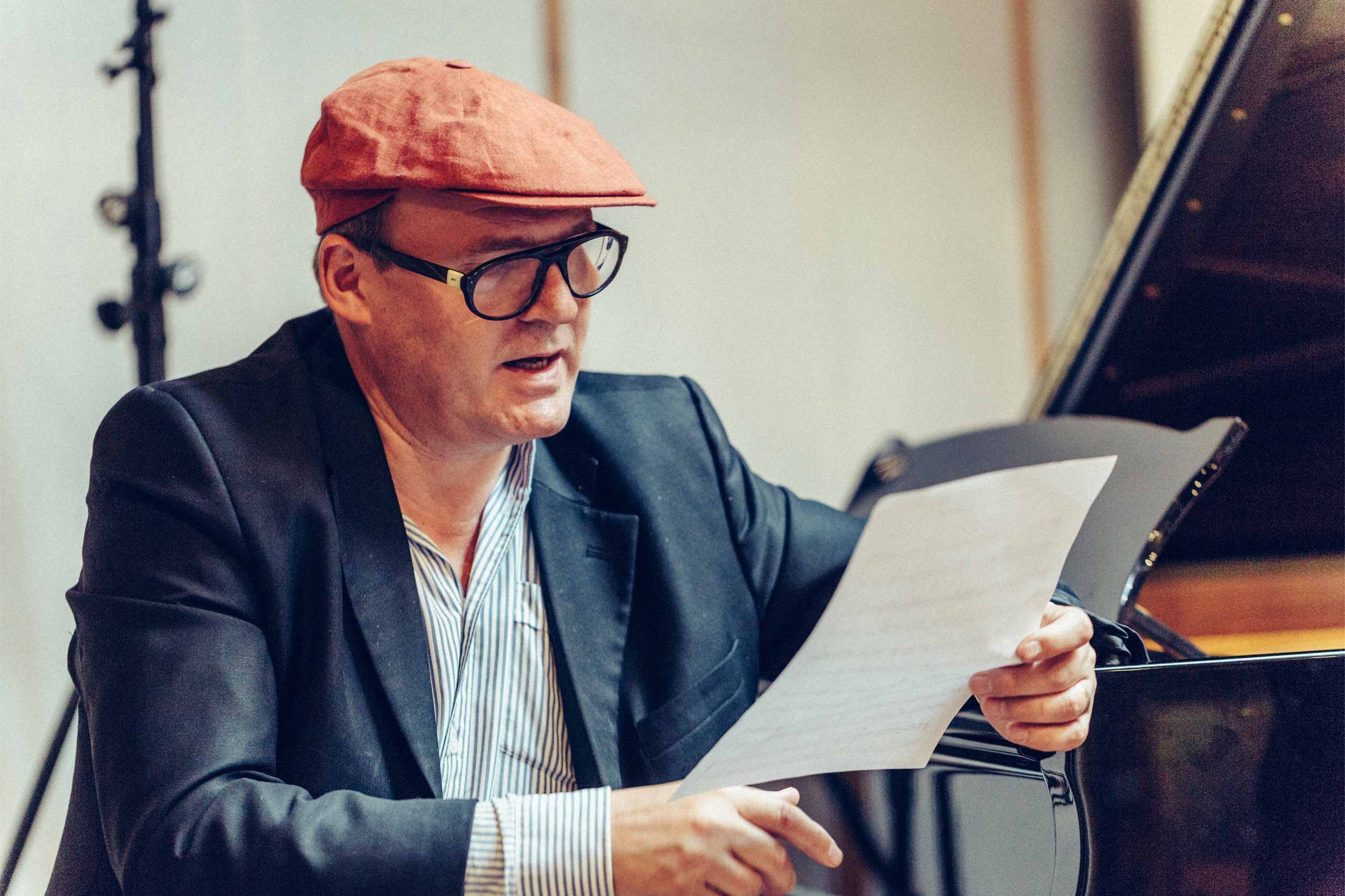
Do you have any upcoming projects that we should be on the lookout for?
Actually, yes. A very interesting project, I think. I made a single with a guy called Jan Rørdam, ‘For No Reason At All’. And actually today, after our interview, I’m going to a summerhouse with him, a video guy and a sound guy. So we’re going to finish an album. We are starting recording today.
Ever since I was a kid, I’ve always dreamt to take the whole band, to travel somewhere, to set up the studio and to work. I’ve never done that. And now, I’m an old man and I’m finally doing this. Four old men in a summerhouse making music. [laughs] I think we’ll finish the recording this week and then finish the whole thing next week. We have composed everything already. So that will be my next album.
What about projects for film or television?
I just finished a German movie, a very interesting project that I like very much. It’s called ‘Geborgtes Weiß’. I’m going to release the soundtrack album soon.
I was just asked to work on a Danish movie – I haven’t worked in Denmark for a long time. And a movie from Macedonia. I think I’m going to make those two movies.
But I’m very interested in making more albums. I’ve been a film composer for the last thirty years and now I want to make albums and concerts like I did when I was younger. I’m going to do both – films and concerts and albums.
Is your upcoming gig in Copenhagen part of that?
That’s very much a part of what I want to play concerts with. It’s with the string quartet from the album and me on the piano. We’re going to present the album there.
In January I was travelling around the world and played a concert in Shanghai and one in Los Angeles and I was supposed to also play a concert in London, which got cancelled. But the others were played just before corona, with me at the piano and a local string quartet. That was very interesting. I loved it, so I want to continue that.
Do you have a dream project that you want to work on at some point?
I want to work with the Danish choir called ‘Theatre of Voices’. I want to make a choir piece for them.
What makes them special?
They are very good. There’s a very good conductor called Paul Hillier. He had a ‘Theatre of Voices’ in California, I think, and then he played a concert in Denmark and fell in love with a soprano [Else Torp]. And then he moved to Denmark and made another ‘Theatre of Voices’. They are very good at making good music and I think someday I would love to make a project with them. I actually met that soprano the other day and said, ‘Oh, I really like your work. I would love to work with you.’ And she said, ‘Oh, just call us.’
Stella Lungu
Stella is the Editor-in-Chief of The Cinematic Journal. She is also the Managing Director of Wolkh, a PR, Marketing and Branding agency specializing in Film, TV, Interactive Entertainment and Performing Arts.
An Interview with Anna Drubich
Anna Drubich is a Russian-born composer of both concert and film music, and has studied across…
A Conversation with Adam Janota Bzowski
Adam Janota Bzowski is a London-based composer and sound designer who has been working in film and…
Interview: Rebekka Karijord on the Process of Scoring Songs of Earth
Songs of Earth is Margreth Olin’s critically acclaimed nature documentary which is both an intimate…
Don't miss out
Cinematic stories delivered straight to your inbox.
Ridiculously Effective PR & Marketing
Wolkh is a full-service creative agency specialising in PR, Marketing and Branding for Film, TV, Interactive Entertainment and Performing Arts.
